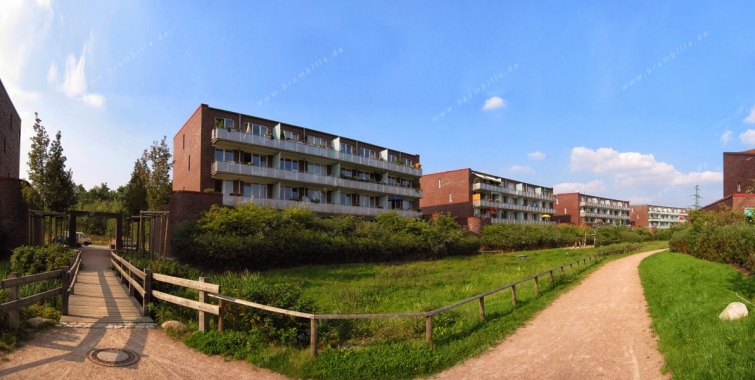Housing in Hamburg and the German market
Hamburg, 19 March 2014 | Economy
Follow the recent developments in the housing sector in one of the largest cities of Germany. How has the housing market of the country been affected by the crisis? CECODHAS Housing Europe suggests for the EU urban agenda of the future.
In Hamburg
The cost of living has always been high in Hamburg and has been getting constantly higher over the last years affecting thus the housing market and mainly the weaker social layers. A big contradiction is to be observed on Mönckebergstrasse and on the other main streets of one of the richest and largest German cities. On the one hand expensive shops and well-off citizens and on the other hand a growing number of homeless. The main challenge the local government is facing is to define a different housing strategy that will be able to increase the limited number of affordable flats.
There is now a new long-term strategy under way to construct 6.000 new flats per year. This initiative is developed through the common work of local authorities, architects and housing associations. The first results of this strategy that were registered were rather encouraging, since 6.800 new flats were built just in 2011. However, figures show that the average rent has increased from 2005 to 2011 by 25%. Further challenges the city of Hamburg is facing include:
Demographic change
Decreasing population in some areas mainly due to young people leaving their hometown and the segregation of some parts of the urban area is an alarming phenomenon. At the same time the Federal Office of Statistics anticipates an increase of 97.000 households in Hamburg until 2030. To attract mainly young talents, the campaign “You are the one Hamburg is still missing” has been launched. Candidates can even win a free one-year stay, including accommodation and work.
The German Market
As Bloomberg reports in Germany apartment prices fell by about 5 % in the four years before the credit crisis hurt global markets. In the fourth quarter of 2008, the time after Lehman Brothers failed, residential values in the country fell just 0.7 % from a year earlier, compared with a decline of about 12% in the US and 9.1 % in Ireland, according to the Knight Frank Global House Price Index. House prices have been relatively stable in Germany over the last 25 years in a market where the home ownership rate of 43 % lags way behind the EU average of 65 %.
Housing prices in big cities like Berlin, Hamburg, Munich and Frankfurt am Main are rising much faster than rents. In these cities where the prices are above average, rents are also higher than average. The highest rents are to be found in Munich (12.3 €) and in Hamburg 10.9 €/m².
Sources: Bloomberg, Portal of the City of Hamburg, German Institute for Economic Research
Leave comments